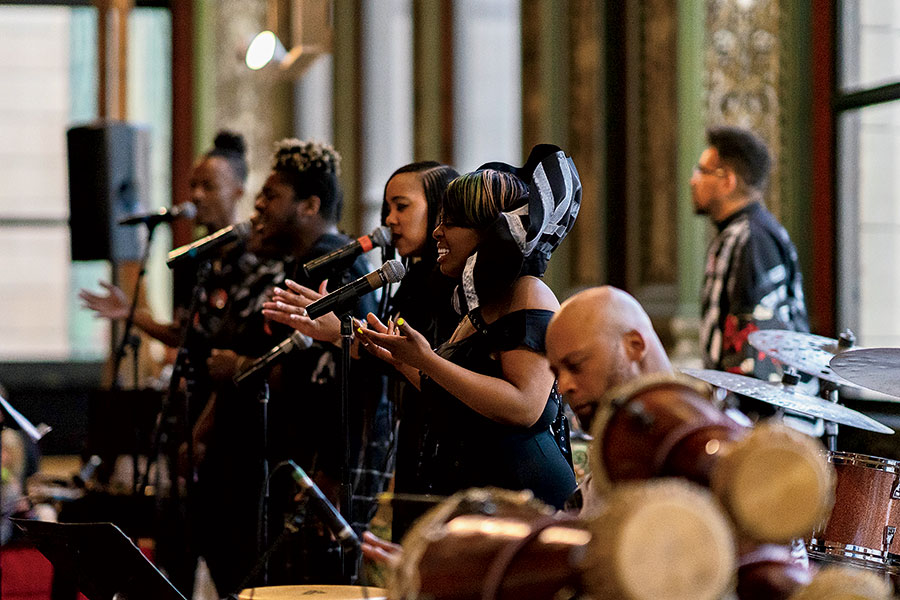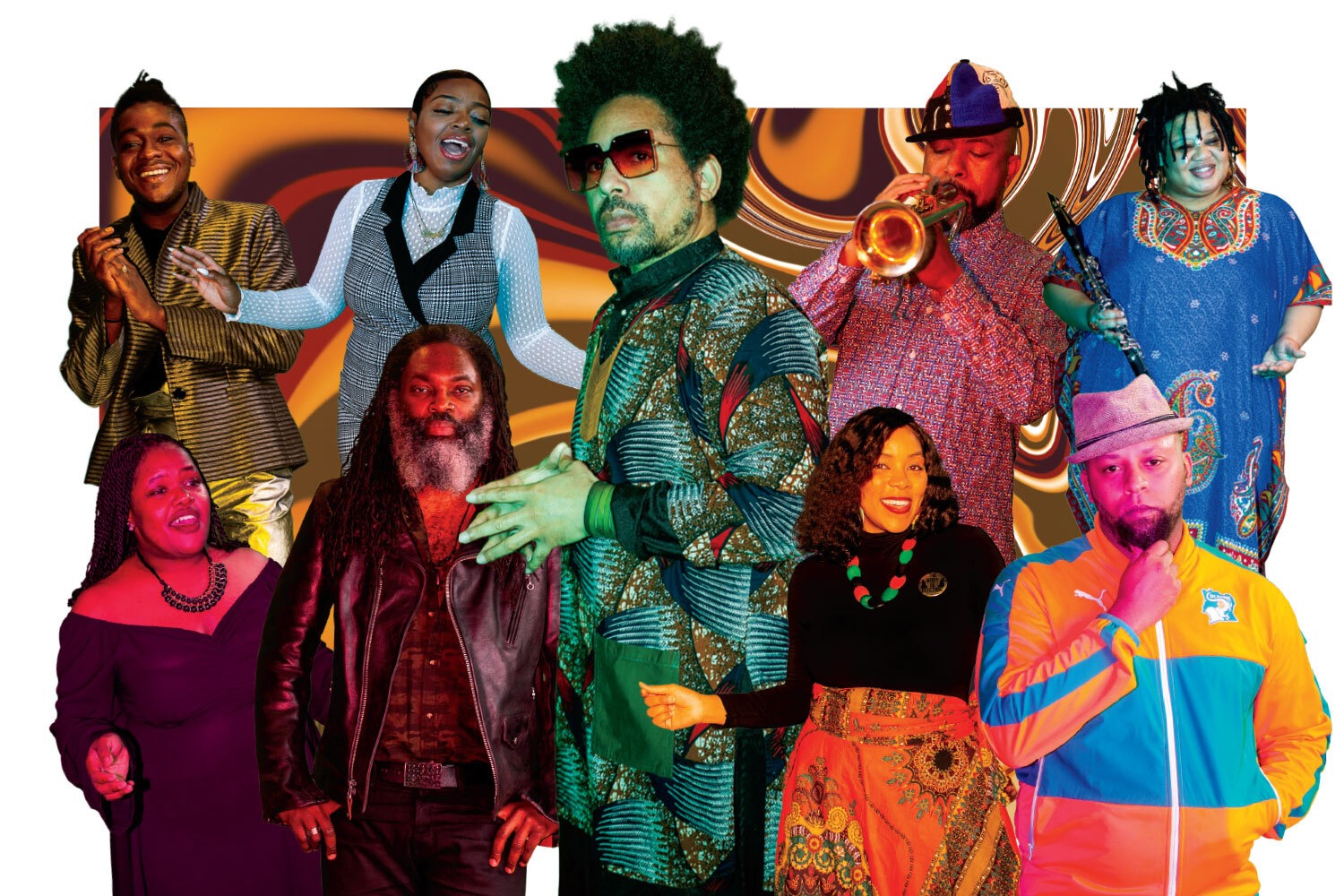A Damon Locks and Black Monument Ensemble concert is designed to stun. Half a dozen dancers, barefoot and dressed in black costumes with thick diagonal white lines, move in graceful arcs. Six singers sway in unison as they harmonize. Two percussionists pound out rhythms while a clarinetist and a cornetist blast out melodic lines and free-jazz wails. All the while Locks, operating a digital sampler, is triggering electronic squiggles or sound bites from civil rights activists. Intermittently, he’ll issue spoken-word missives of his own over a microphone that sounds like a bullhorn.
In short, it’s a spectacle. “You’re like, Is this theater? Is this a band? What is happening? ” Locks says. He wants audiences to have the same response he had when he’d catch cutting-edge acts like Bad Brains and Sun Ra Arkestra as a youth. “You would go, Oh my God, I’ve never seen this before! ” For the socially conscious elements — the parts that feel “connected to the world around us” — he drew inspiration from Public Enemy. “They would put out an album, and then they’d be on the news.”
On Black Monument Ensemble’s just-released second LP, Now, Locks channels the dynamism of the group’s concerts while also speaking to current events. Last summer, during the civil unrest over the police killing of George Floyd, he received feedback on Instagram from fans telling him they found solace in the group’s first album, 2019’s When Future Unfolds. “It inspired me to wonder what Black Monument could say contemporarily,” says Locks, 52, who was raised in Maryland and moved here in 1988 to study at the School of the Art Institute of Chicago.
Nowhere is that more evident than on Now’s second track, “The People vs the Rest of Us,” which includes a haunting sample of a little girl saying “They don’t like me” and clips of a talk show host asking a Black man why he didn’t take a plea deal. The response: “If I was guilty, I probably would have taken it. I’m not guilty.”

Now exudes all of Locks’s formative influences — the interplanetary exotic jazz of the Sun Ra Arkestra, the hardcore zeal of Bad Brains, and the dense sound mixing and political undercurrent of Public Enemy. It also feels like a culmination of his previous projects: Trenchmouth, the punk band he fronted in the 1990s (future Saturday Night Live and Portlandia star Fred Armisen was its drummer), and the Eternals, the still-running dub reggae and avant-garde jazz group Locks formed in 1997.
On When Future Unfolds, Locks replicated the energy of the group’s live performances, at least sonically, by recording a concert at the Garfield Park Conservatory. With the pandemic raging, that was impossible for the new album. He couldn’t even gather the full band in a studio. So Locks recorded Now in two sessions — with clarinetist Angel Bat Dawid and the six vocalists in August and the rest of the musicians in September — in the garden of the nonprofit sound-art facility Experimental Sound Studio in Edgewater.
In a couple of places on Now, you can hear the group’s chatter between takes, even insects droning in the background. “I was really interested in capturing the moment of the pandemic,” Locks says. “The electricity of the nervousness, that desire to be in community with each other.” After the title track, Dawid can be heard exclaiming, “That is a forever momentary space! I hope y’all don’t cut the cicadas out.” They did not.




Comments are closed.